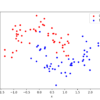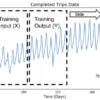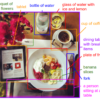Weight constraints provide an approach to reduce the overfitting of a deep learning neural network model on the training data and improve the performance of the model on new data, such as the holdout test set. There are multiple types of weight constraints, such as maximum and unit vector norms, and some require a hyperparameter […]









